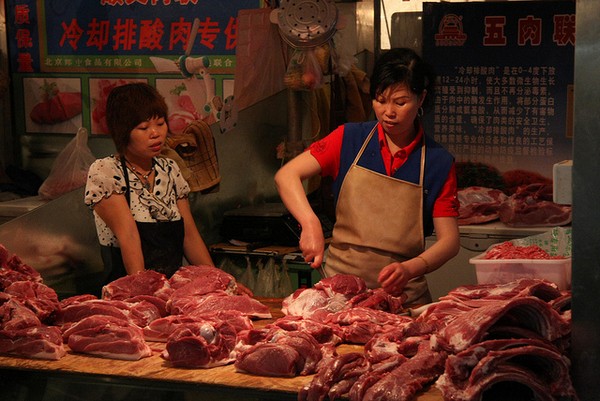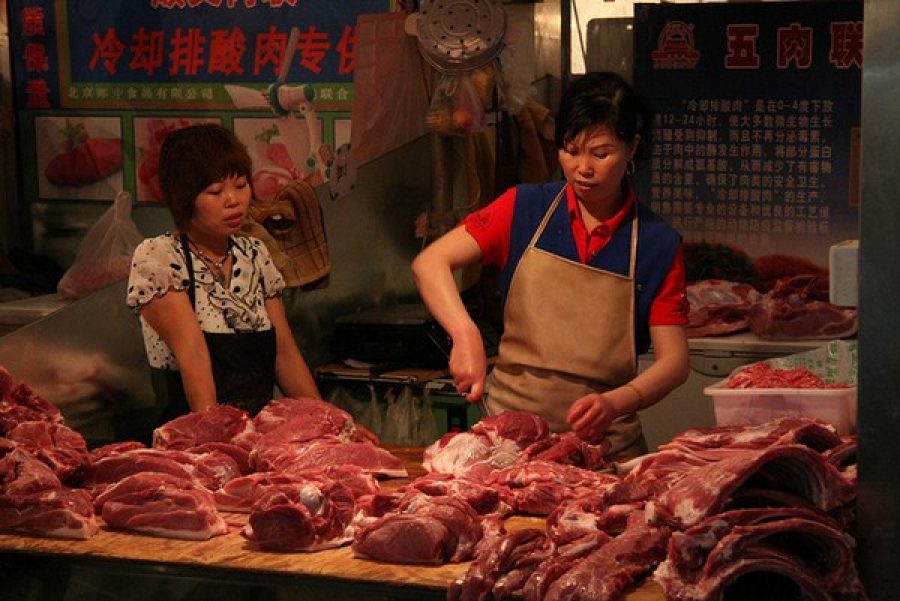Prices of fresh meat and produce will remain stable this year and there won’t be a steep price increase in the run-up to next month’s Chinese New Year, representatives of Nam Kwong Commercial Company and Nam Yue Food Stuffs & Aquatic Company said yesterday.
All of Macau’s fresh meat and produce is imported by the two companies from the mainland.
The Chinese Lunar New Year, also known as the Spring Festival, falls on February 19 this year.
The wholesalers held a press conference on Tuesday at Federal Restaurant to give a presentation on the city’s meat and vegetable consumption and prices in 2014 as well as price and supply trends expected for this year.
Nam Kwong Commercial Company General Manager Chen Jun said he did not expect a big price increase for fresh meat in the run-up and during the Chinese New Year holiday period. He also said he expected the wholesale prices of pork, beef and vegetables to remain stable this year.
“From the suppliers’ point of view, at the moment we see that prices are going to be stable,” Chen said, adding: “There won’t be a sharp increase. We don’t put prices up during the Spring Festival, no, we don’t do this kind of things.”
The wholesalers also said that based on the mainland’s swine production cycle, the yuan exchange rate and consumers’ demand, pork processing was expected to remain stable this year while supply was expected to show a slight increase. Poultry prices were also expected to remain stable and it was unlikely to see any big price changes for vegetables this year.
According to the presentation, 108,494 pigs were exported by the mainland to Macau for slaughter last year, 3.25 percent more than in the previous year.
Fresh pork prices dropped to the lowest in three years in May 2014 at 1,270 patacas per picul (one picul is roughly 60.5 kilogrammes).
The mainland exported 1,930 cattle to Macau for slaughter last year, an increase of just 1.2 percent from the previous year. The average price of beef stood at 4,742 patacas, up just 3.8 percent from the previous year, namely due to relatively low supply to meet high demand in the mainland, inflation, and low consumption in Macau.
However, the mainland’s supply of chickens – including silkie chickens – and pigeons to Macau dropped 18 percent and 9.5 percent respectively from the previous year, namely due to the H7N9 virus where the government imposed a ban on two occasions last year, lasting over two months in total. Despite the H7N9 menace, after the temporary bans were lifted, the prices went up 6.7 percent for chickens and 2.33 percent for pigeons. Fresh duck imports have been banned by Macau for many years.
Nearly 54,600 tonnes of vegetables were supplied to Macau by the mainland last year, 5.89 percent more than the previous year.
(macaunews)






